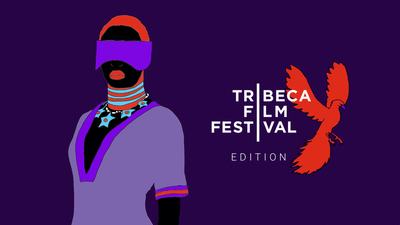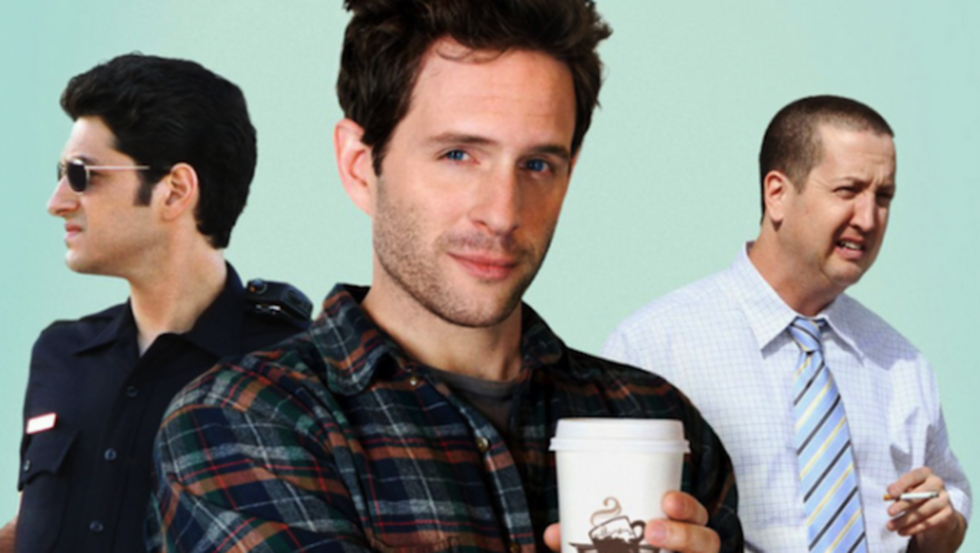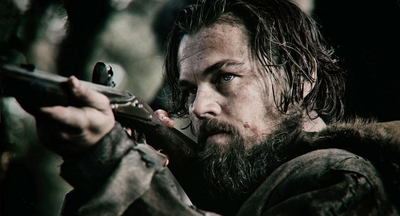
BY ZACHARY WIGON |
Ricky Van Veen and the Future of Niche Content (Part 2)
Many people talk about trying to find a new paradigm for digital distribution. Ricky Van Veen is doing it. Part two of our interview with the CollegeHumor co-creator about what he learned distributing 'Coffee Town.'

(This is a continuation of a two-part interview. Read part one here.)
Tribeca: This all calls to mind the idea of the star system. It used to be that you cast a movie star in order to reach a broader audience than your core demo. But now, the brand kind is kind of what sells the project, and so perhaps the role of the star is becoming outmoded?
Ricky Van Veen: We're obviously getting toward the moment where you can make a movie and have it do well without having a broad star. The days of spray and pray marketing being the only route are over.
I think a mistake a lot of people make is to identify a target audience and then work backwards into creating a product for them.
Because it used to be that when you released a piece of commercial entertainment the distribution means had to be broad, there was no internet, you were either in everyone's theater or you weren't, indies excluded. It's like for TV, you were either on the three networks or you were nothing. So you had to have these movie stars who could play everywhere.
Now - as we learned with Coffee Town - you just have to have people who are somewhat recognizable. When I was doing press for the film, the first question was often, who's in it? And you can ask, well, do you watch Always Sunny? It's Dennis from Always Sunny, Glen Howerton. So I think you need some sort of touchstone - either the actor themselves or something they've been in - that helps people make sense of what they're about to watch - but I don't think you need a movie star everyone knows anymore. It's not a necessity for films that are distributed like this.
Tribeca: Do you think you get to a point where the first thing you say is, it's a CollegeHumor movie?
Ricky Van Veen: 100 Percent.
Tribeca: So I'm wondering, do you think it ever gets to a point where the appeal of films becomes specialized in that manner? I mean, if you think of the amount of YouTube channels out there - perhaps we enter a landscape where it's like, it's a CollegeHumor movie, it's a Vice movie, that sort of thing. It's about the audience picking the entertainment brand they associate with most closely.
Ricky Van Veen: I think so. If you look at how YouTube is evolving its subscriptions, people subscribe to CollegeHumor, to Vice, they say, I trust this brand to give me the kind of content I'm going to enjoy. That could be just YouTube clips today, but you have to think, going into the future, that method of distribution will expand to longer-form content - TV shows, movies, where the brand is the touchstone even more than the actors.
There's so much content out there now, it's hard to know what to watch but it's also hard to even hear about things anymore.
I think a lot of people had heard of CollegeHumor more than the actors in Coffee Town. In that case, being a CollegeHumor fan was more important than being a fan of one of the actors. The instances I can think of where a brand has driven a feature film franchise are very few, but do you remember Broken Lizard? They did Super Troopers. They were smart enough to call that a Broken Lizard film, and they became a comedy troupe and film brand. So people were like, are you going to see the new Broken Lizard movie? That was the last time I can remember a brand carrying a movie. If a brand can get on the same level as a popular director - I mean, people say, the new JJ Abrams movie, not the new Bad Robot movie, but it would be interesting if they did. It's not that unfathomable.
Tribeca: There's something interesting there related to accountability. I mean, if Sony releases a couple bad movies, no one's going to not see the next Sony movie because the past few Sony movies were bad. But with this model, everything you guys are doing is being done according to the CollegeHumor standards, so you're creating this brand integrity, which is integral to selling future products. At a studio they don't have that association with brand integrity.
Ricky Van Veen: Right, and if you dilute the brand you're out of luck. So it's about maintaining brand consistency, making sure everything is done according to what we're about. Then you become a filter people trust. There's so much content out there now, it's hard to know what to watch but it's also hard to even hear about things anymore. I'm sure there are tons of good movies that have come out in the past few months that I've missed simply because I didn't hear about them. So if you can narrow your group of tastemakers, and say, if something's good I'll probably hear about it from them, that's hopefully what good content-brands will do.
If you have one series for young women and one series for older guys, you're really catering to nobody.
Tribeca: The idea of the brand's consistency is interesting, because it's a sort of combination of being an artist and running a company. What's that process like, making sure the brand's product feels consistent?
Ricky Van Veen: It's funny you say that, because recently we've been - we have a new editor-in-chief, Susannah Wolff - and with a new EIC you have these conversations, like, what is CollegeHumor? Who is our audience? So we were recently re-evaluating that and re-realized the importance of consistency and voice. For a while we had all these shows that weren't exactly on point. So we decided we had to narrow down the series on CollegeHumor, because that's one way a brand can get diluted. If you have one series for young women and one series for older guys, you're really catering to nobody. Nobody would say, I want to subscribe to the ABC Network, because I like Desperate Housewives and Sunday Night Football! You need to pick a lane. So we have to do that with CollegeHumor.
When we would put out a video that was a little off to the side of what our brand usually is, we would get unsubscribes.
An interesting thing about running a popular YouTube channel is that YouTube tells you, after every video, who subscribes and who unsubscribes. So we looked at that data and found it really interesting, because when we would put out a video that was a little off to the side of what our brand usually is, we would get unsubscribes. And when we would do one right down the middle, what College Humor usually is, we would get a ton of subscribes. So that helps us inform what the brand should be. So it's really about a strong point of view with a narrow focus.
Tribeca: You talk about the idea of picking a lane - you know, this is interesting in terms of the gaps in the market that are underserved by broader media companies, like film studios. How do you go about finding gaps in the market, underserved demos, like you've done with CollegeHumor?
Ricky Van Veen: A great example - a few years ago we started putting a lot of nerd content on CollegeHumor - video game humor. We started doing a lot of it because it was so popular, and eventually it became so popular that we decided to break it off into its own site, which became Dorkly. And the reason we realized there was a void was because this stuff that was slightly different was doing so well, and then we realized that nobody was doing video game humor.
There's a reason studios aren't making many comedies anymore - it's because they don't play well overseas.
I think a mistake a lot of people make - and we've made this mistake in the past - is to identify a target audience and then work backwards into creating a product for them. So you have a business problem looking for a content solution, instead of a content need, which you should fill. Then the audience will follow and the business will follow. It would be like saying, there are baby boomers, so let's create a TV network for baby boomers, but it's like, yeah, those people already watch regular TV.
Tribeca: It makes sense to approach it the way you're doing, because on a manner of scale, a company like Sony, let's say, can't afford to specialize in, say, the video game humor market - the whole idea of a Hollywood studio is that their product has to perform in New York or in Kansas. You don't have to be that broad.
Ricky Van Veen: Companies like us that make this kind of content - I don't even think of the studios as competitors to what we're doing. There's a reason studios aren't making many comedies anymore - it's because they don't play well overseas. Movie studios now, their first thought is, will it play in China? Will it play in Russia? If it doesn't, they'll make something that does - it makes business sense. Comedy doesn't translate, traditionally. Coffee Town we've sold into English-speaking international territories, but I don't see it playing well in, say, Japan. So our model is a different model from the studios.
If someone was trying to make spectacle action movies with our model - well, first of all, I don't think you could compete, because you need a worldwide marketing and distribution capability to make any money back - so I think we'll wind up with two categories in the future: spectacle and idea. You can't make spectacle on the low budget - car crashes and sci-fi and whatnot. But if you have a good idea, you can make that low budget, because people hear the premise and say yeah, I want to see that. I think that's where these niche players will play - in the contrarian idea-space.

